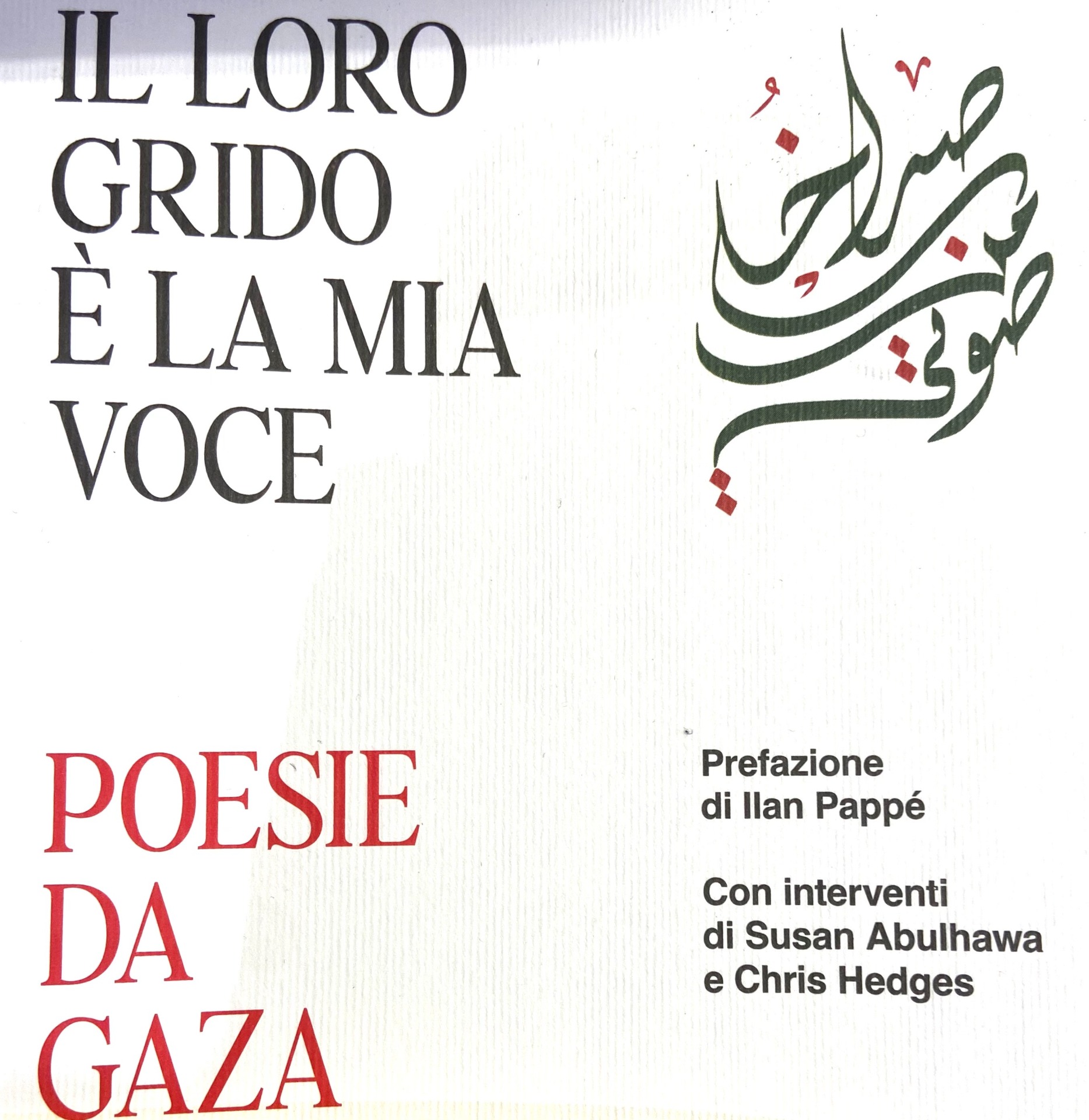A cosa serve la poesia? A restare umani / What Is Poetry For? To Remain Human.

Per scrivere una poesia non politica, devo ascoltare gli uccelli, e per sentire gli uccelli bisogna far tacere gli aerei da caccia. È da questo ossimoro bruciante che prende voce Il loro grido è la mia voce. Poesie da Gaza, un libro che raccoglie versi nati sotto le bombe e cresciuti nell'assedio, testi in cui la poesia smette di essere ornamento e diventa carne viva, lingua di sopravvivenza, gesto quotidiano di resistenza civile. Qui la parola è un atto necessario, come respirare sotto le macerie, come cucinare con la farina che sa di sangue. La bambina il cui padre è stato ucciso mentre portava un sacco di farina sulla schiena continuerà a gustare il sangue di suo padre in ogni pane. Questa non è metafora, è realtà trasformata in linguaggio, ed è proprio il linguaggio che in Palestina resiste all'annientamento. In una terra dove la distruzione sistematica cerca di cancellare anche la memoria, la poesia diventa archivio, cronaca emotiva, voce che nessuna sirena d'allarme può silenziare. Non c'è più separazione tra estetica e politica, tra dolore e parola. Il libro, arricchito dalla prefazione dello storico israeliano Ilan Pappé e da interventi di Susan Abulhawa e Chris Hedges, non chiede compassione, ma ascolto. Ogni poesia è una ferita che si rifiuta di cicatrizzarsi nel silenzio, un frammento di verità che resiste al rumore del mondo, al rumore dei droni, delle narrative tossiche, delle guerre raccontate senza nomi. La poesia araba ha sempre avuto un ruolo centrale nel tessuto sociale, ma a Gaza assume una forma ulteriore: è trincea e rifugio, grido e sutura. In un'epoca dove la geopolitica spesso riduce i conflitti a numeri o strategie, queste parole ci ricordano che dietro ogni esplosione c'è una madre che raccoglie il figlio in una borsa, un padre che muore portando farina, un bambino che scrive versi con le dita sporche di polvere. Questo libro non si limita a testimoniare: chiede di prendere posizione, di non restare muti. Non è solo un'antologia, è una chiamata. Il loro grido è la mia voce significa che la voce poetica diventa collettiva, diventa eco di chi non ha più fiato. E in un mondo in cui tutto è rumore, la poesia, così, torna a essere quello che è sempre stata nei momenti più bui della storia: l'unico modo per restare umani.
Antonio Mazzanti
What Is Poetry For? To Remain Human.
To write a poem that is not political, I must listen to the birds—and to hear the birds, the fighter jets must fall silent. It is from this searing oxymoron that Their Cry Is My Voice: Poems from Gaza takes shape—a book gathering verses born under the bombs and raised under siege. In these poems, poetry is no longer ornament, but raw flesh, a language of survival, a daily act of civil resistance. Here, the word becomes a necessary act—like breathing beneath the rubble, like cooking with flour that tastes of blood.
The little girl whose father was killed while carrying a sack of flour on his back will go on tasting her father's blood in every piece of bread. This is not metaphor, it is reality transformed into language—and it is precisely language that resists annihilation in Palestine. In a land where systematic destruction seeks to erase even memory, poetry becomes archive, emotional chronicle, a voice no siren can silence. There is no longer any separation between aesthetics and politics, between pain and the word.
The book, enriched by a preface from Israeli historian Ilan Pappé and contributions by Susan Abulhawa and Chris Hedges, does not ask for pity, but for attention. Each poem is a wound that refuses to heal in silence, a fragment of truth that resists the noise of the world—the noise of drones, of toxic narratives, of wars told without names. Arabic poetry has always played a central role in the social fabric, but in Gaza it takes on a further form: it is trench and shelter, scream and suture. In an era where geopolitics often reduces conflict to numbers or strategies, these words remind us that behind every explosion is a mother gathering her child into a bag, a father dying while carrying flour, a child writing verses with dust-covered fingers.
This book is not just testimony—it is a call to take a stand, to refuse silence. It is not merely an anthology, it is a summons. Their Cry Is My Voice means that the poetic voice becomes collective, becomes the echo of those who can no longer breathe. And in a world filled with noise, poetry once again becomes what it has always been in the darkest moments of history: the only way to remain human.
Antonio Mazzanti
